Not all houses or buildings are made with a huge budget. Some are actually built even with a modest budget but it still looks really great.
Do you think that it possible?
Of course, it is!
In fact, there are many homes that were built from scratch by reusing available materials around the area. And the result looks like the owners actually bought new materials to build it. Well, that is the magic of design and engineering!
This is what British firm Grey Griffiths Architects did to a Potting Shed in East London. They used waste materials to form a new, meaningful space.
What does it prove?
It shows how inventive architecture and resourcefulness can actually make a design attainable, even to those who are tight on budget.
Interesting, right?
Check out the shed below:
Location: East London
Designer: Grey Griffiths Architects
Style: Modern
Type of Space: Shed
Unique feature: A modern pottery shed that is completed using salvaged materials.
Similar House: A Serene Wooden Writer’s Shed in London
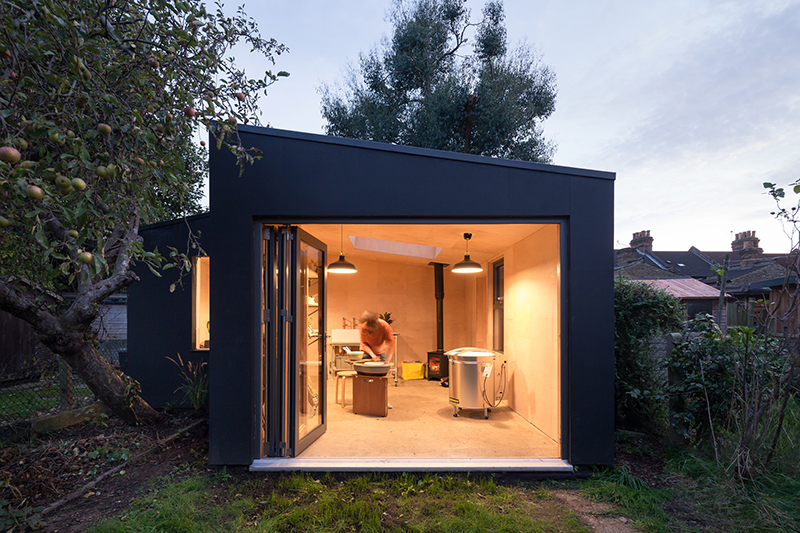
Grey Griffiths Architects designed a multi-use garden studio for a ceramicist and keen gardener. With a limited budget, the designers used salvaged materials throughout the build, fitting the ethos of a maker’s studio.
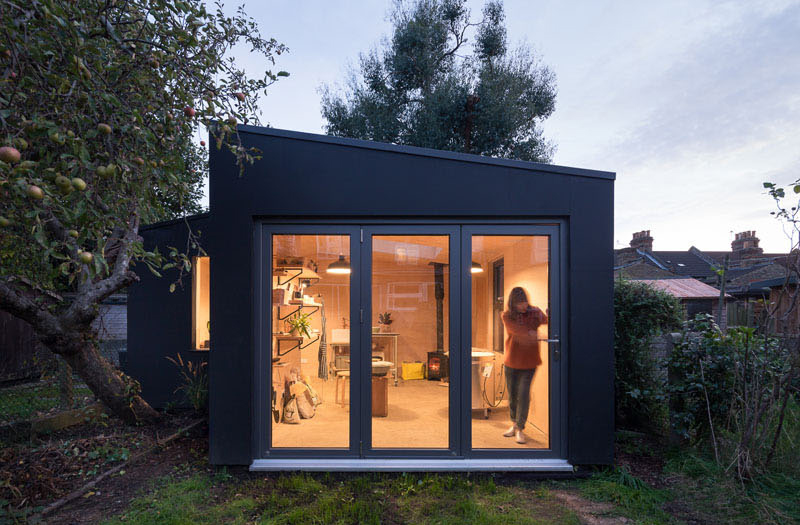
Reclaimed off-cut plywood sheets and ex-display windows and doors were used for this shed. The external-grade birch plywood is smooth and it creates a uniform patchwork finish that is exposed internally to add warmth to the interior. There are different designated areas in the shed for making, relaxing and working.
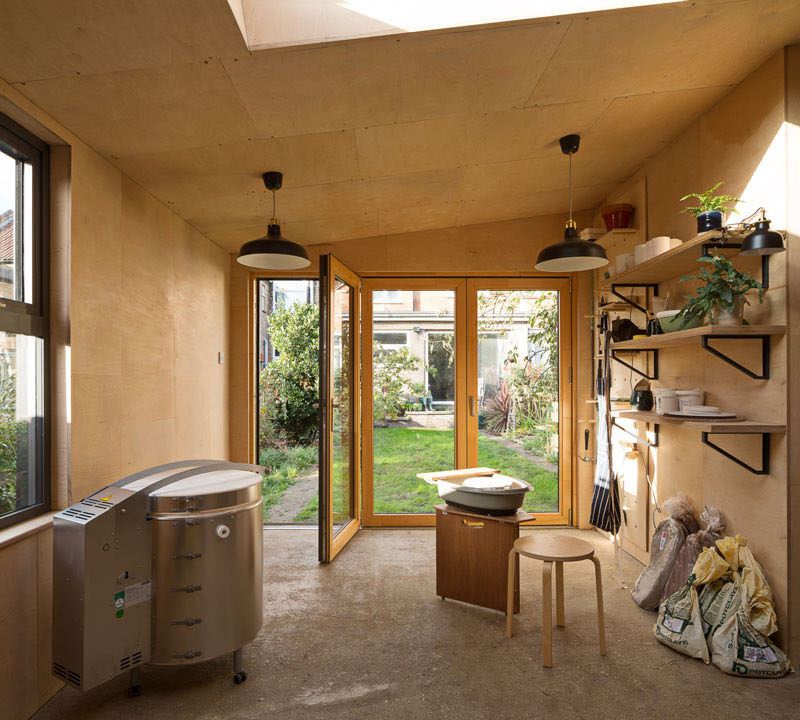
Salvaged materials were used throughout the building. This includes off-cut plywood for exterior cladding and internal walls. The owner wants the space to be used as an office and snug. With that, she made sure that the design was not constrained by the workshop typology. The owner wants to have a warm, inviting space that embraced the practical requirements of a maker’s studio.
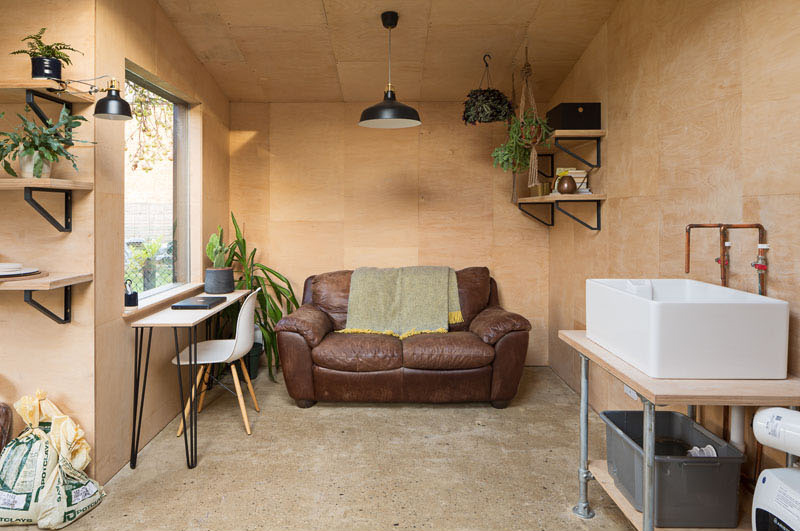
Wood is used for the interior to create a warm and inviting aura. This also embraces the practical requirements of a maker’s studio.
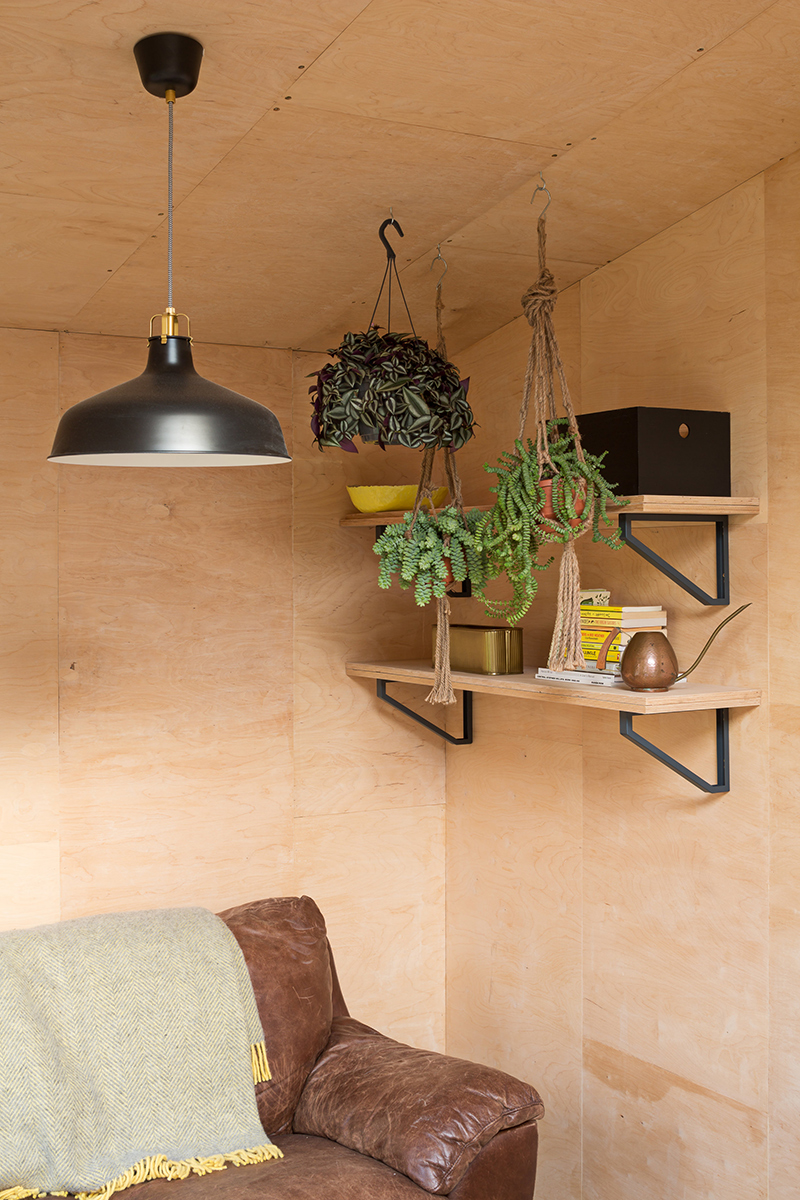
The designers added open shelving like what you can see here. Aside from holding some things that are needed in the space, it is also an added decor.
Read Also: Brick Bay House- An Elegant Shed in New Zealand
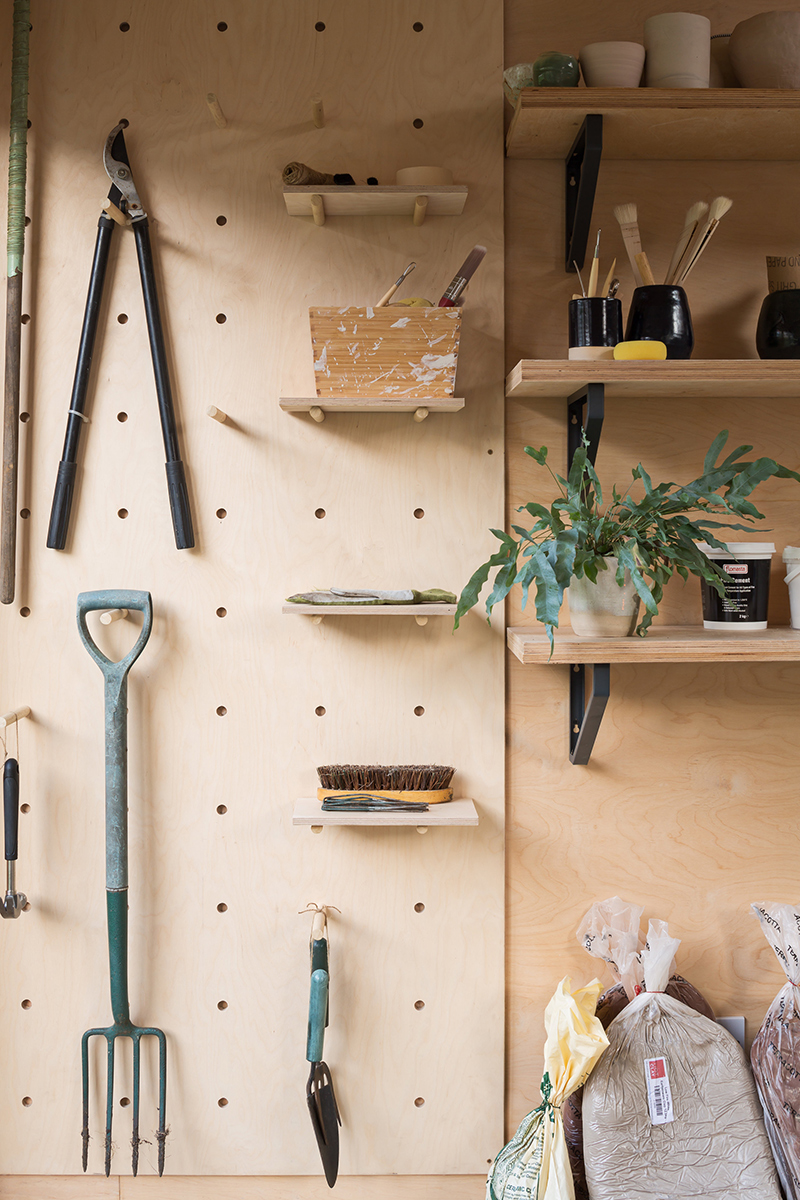
Since the space is limited, it is important that everything is organized well. Look at how neat this wall organizer is complete with open wall shelves. This way, the ceramicist could keep everything she needs in one spot.
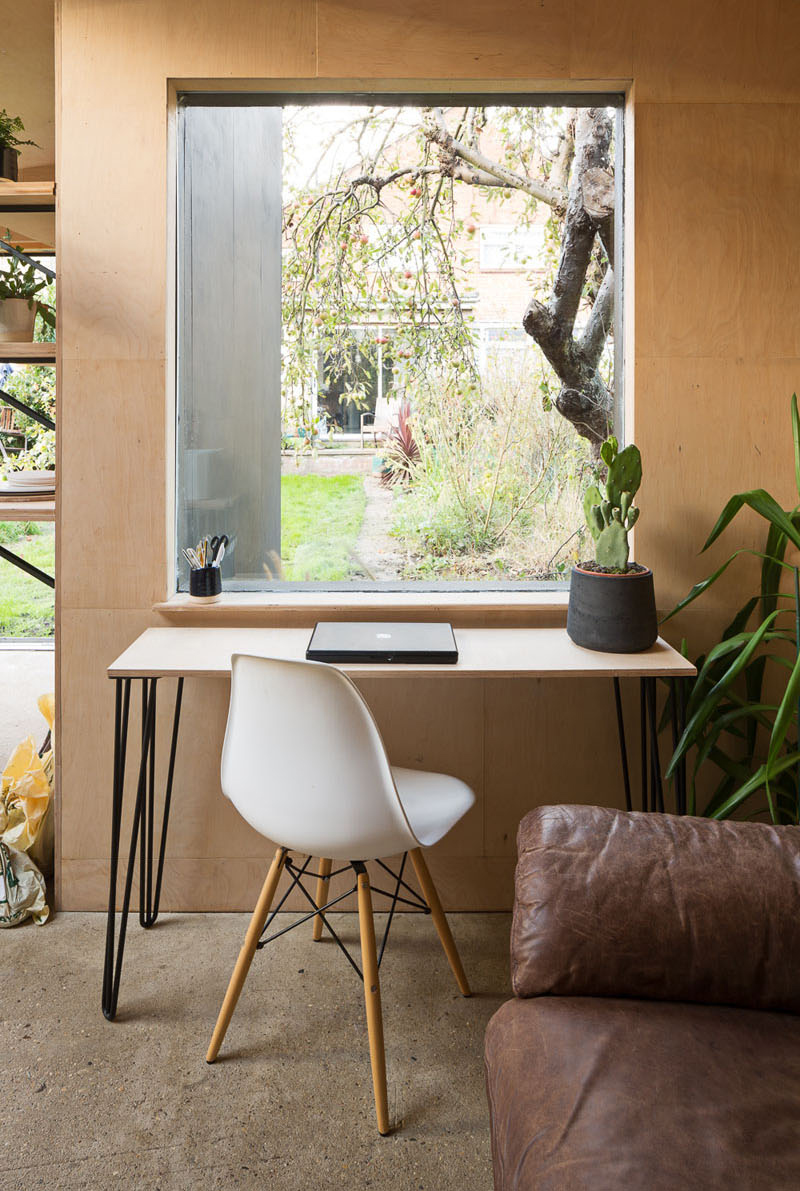
The pottery shed is also used as an office. It has a comfortable couch where the owner can relax and a narrow desk in front of the window which is intended for work.
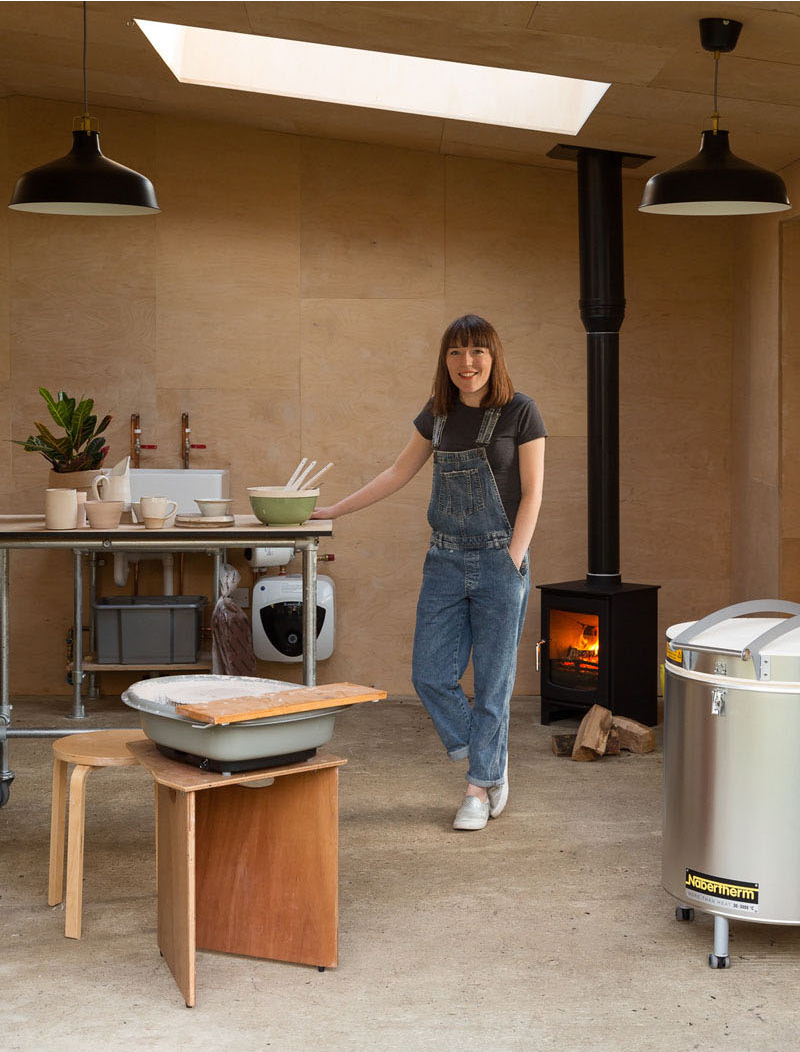
We assume that she is the owner of the shed since she is in all smiles and she appears ready to work. Well, who wouldn’t be happy to have their own space like this? And one thing I noticed here is the skylight that brings natural light into the shed apart from the large glass doors and windows. Also, there is a fireplace to keep the shed warm during cold months.
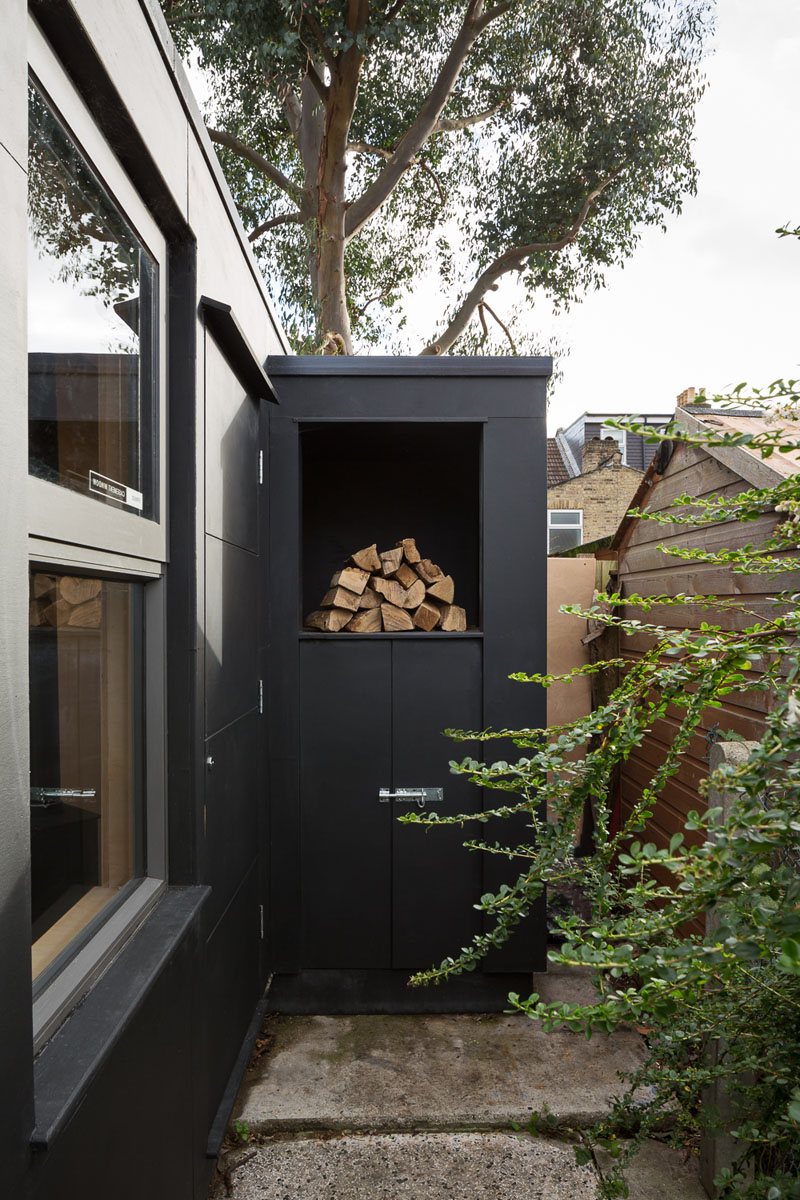
The design of the shed included a place for firewood storage. Also, since there is a limited budget, and to stay within the ex-display windows and doors with little cosmetic damage were used in the shed. And it turned out really nice!
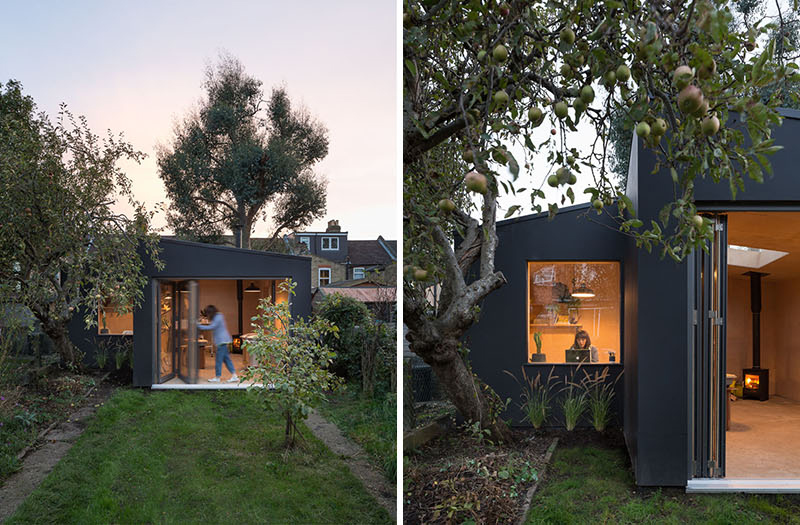
The shed’s front elevation emulates the architectural style of nearby factories. Hence, it used clean lines, matte black finish and a low-rise pitched roof. However, it is scaled to fit the residential setting. It is nestled into the garden enveloping the mature apple tree.
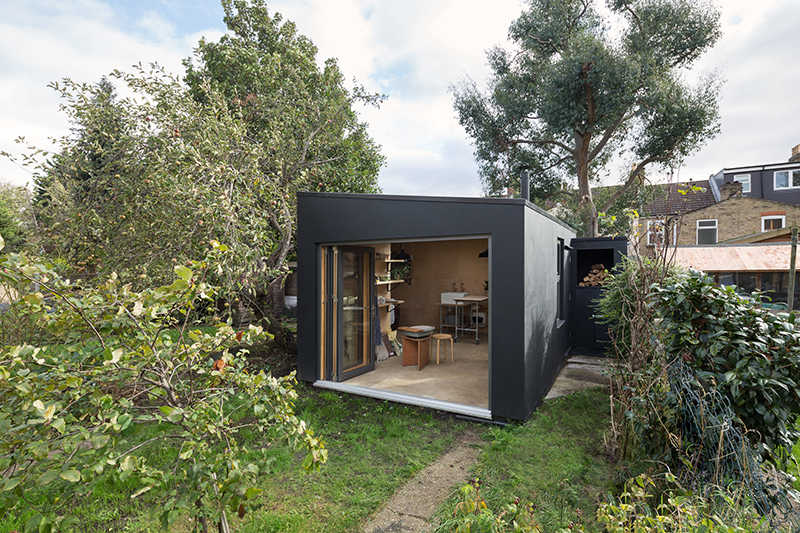
Although small, this shed serves the owner in many different ways. And the best thing about it is that it is home to the owner’s creative side. Also, every time guests see it, they are reminded of the beauty of pottery which could be buried in today’s digital era.
The owner of this pottery shed is pleased with the result of the project. Although she has a limited budget, Grey Griffiths managed to achieve the ceramicist’s goal through the clever use of materials. Because of this, they arrived at a bespoke design, giving the owner a space where she can work three days a week with local makers. Apparently, it is very fulfilling on the part of the owner that she now has her own space to work without making a mess in her main home and without being disturbed. Creative people need a time for themselves and no doubt, the ceramicist could get that from her very own potter shed right off her home! Would you build your own shed too? What would it be for?